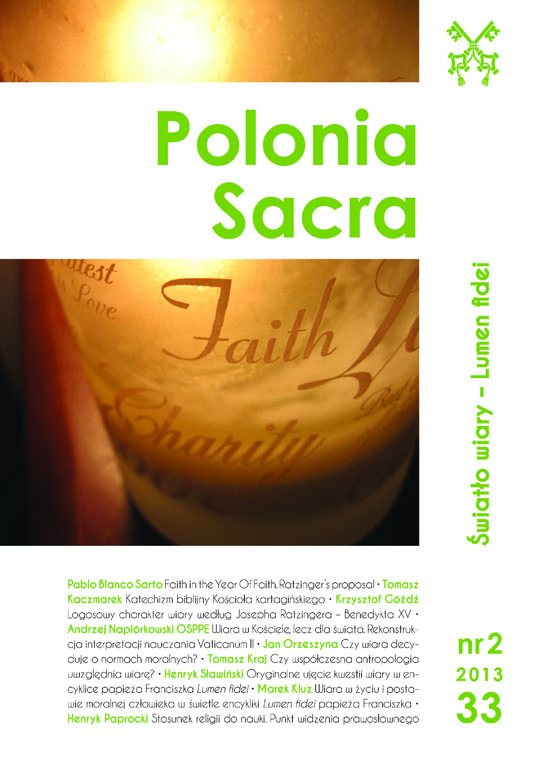Katechizm biblijny Kościoła kartagińskiego
DOI:
https://doi.org/10.15633/ps.364Słowa kluczowe:
„testimonia” biblijne, chrystologia przednicejska, katecheza chrystologicznaAbstrakt
The topic for discussion of this thesis is Ad Quirinum, the second tome of st. Cyprian’s work, the bishop of Carthagina (210–258) which can be thought of as a remarkable biblical catechism. This book, composed of thirty Christological thesis together with corresponding biblical citations, is dedicated to “the mystery of Christ” (sacramentum Christi) understood as concise presentation of salvation economy where Christ is its centre and the interpretative key for the Bible. This image is that interesting because it is the only pre- Nicean Christology compendium of this type, which directly introduces us to theological thought preceding a very difficult for Christianity trinitian controversy.
The main focus is on the issues of presented by biblical testimonia, secondly on the biblical basis of Christological catechesis as to consider three aspects of sacramentum Christi, i.e. Christ’s work expressed in inluminator and salvator titles, the power of the sign of cross and ecclesiological titles: Christus sponsus conceived with ecclesia sponsa.
Pobrania
Opublikowane
Numer
Dział
Licencja
Prawa autorskie (c) 2013 Tomasz Kaczmarek

Utwór dostępny jest na licencji Creative Commons Uznanie autorstwa 4.0 Międzynarodowe.
Autorzy publikujący w czasopiśmie udzielają jego wydawcy zgody o następującej treści:
- Autor zachowuje autorskie prawa majątkowe do utworu, a jednocześnie udziela wydawcy czasopisma zgody na jego pierwszą publikację w wersji drukowanej i wersji online na licencji Creative Commons Uznanie autorstwa 4.0 Międzynarodowe oraz zgody na wykonywanie opracowań, w tym przekładów.
- Autor ma możliwość udzielania zgody niewyłącznej na opublikowanie utworu w wersji, która ukazała się w czasopiśmie (np. zamieszczenia go w repozytorium instytucjonalnym lub opublikowania w książce), wraz z informacją o jego pierwszej publikacji w czasopiśmie.
- Autor może umieścić swój utwór online (np. w repozytorium instytucjonalnym lub na swojej stronie internetowej) jeszcze przed zgłoszeniem utworu do czasopisma.

